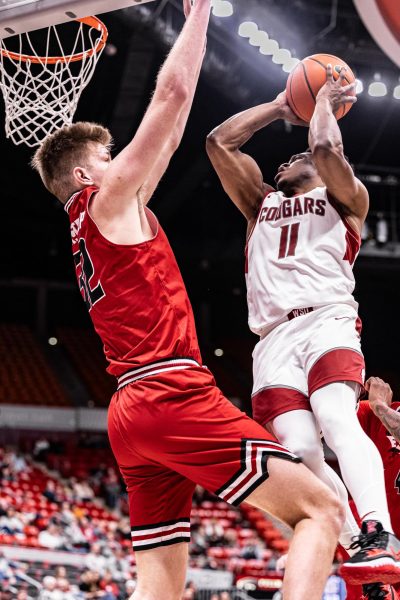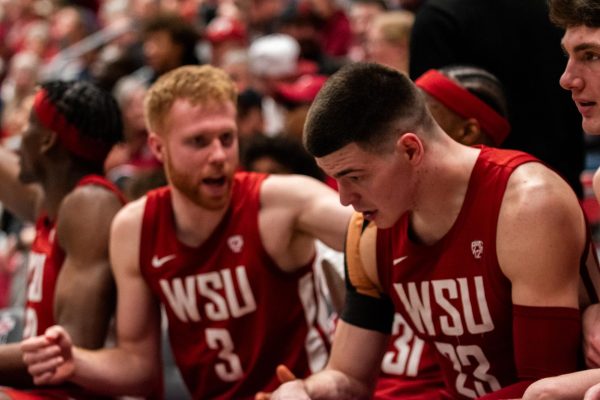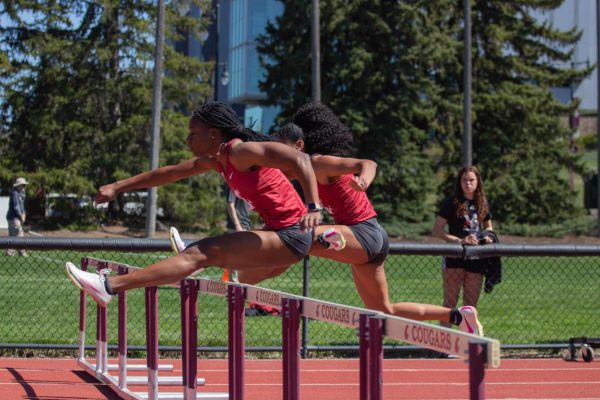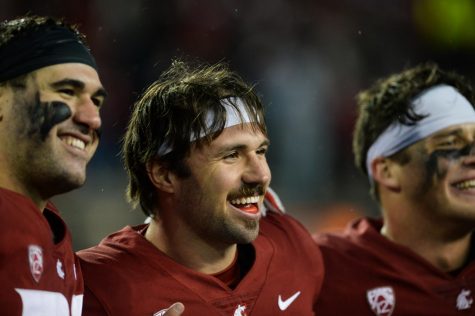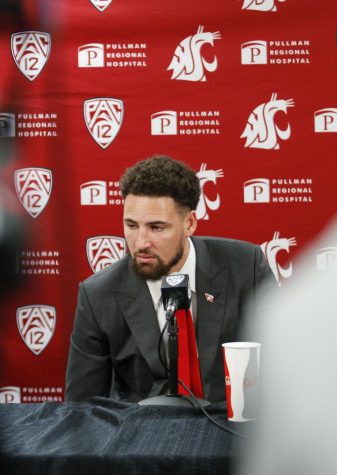Athletes’ influence is a powerful force
November 18, 2015
Public universities were designed to be safe spaces where individuals could gain an education and express themselves without fear of judgment or prejudice. Freedom of ideas and thoughts were what ruled campuses across the country.
But that has been lost somewhere along the way. Athletics are now the king of the castle, and that has caused some surprising changes.
The University of Missouri is a prime example of this radical change. The school has been a hotbed for racial controversy over the last few months, with things escalating to a boiling point on November 17 when then-President Tim Wolfe resigned from his position.
Student groups had been asking Wolfe to step down since at least Oct. 21, when the organization known as Concerned Student 1950 issued a statement asking for a formal apology and his removal from office. These students, with the support of many other on campus organizations, were fed up with the lack of communication and progress Wolfe had made regarding recent incidents of racism on campus.
What kind of incidents could cause such a bold demand? Racial slurs were being directed at multiple students, including the president of the Missouri Students Association Payton Head and members of the Legion of Black Collegians. A swastika was written using human feces right outside of a bathroom in a building on campus. These are only two examples of the kind of racist and discriminatory acts that have been happening at the school.
Tensions continued to rise at Missouri when students surrounded and blocked President Wolfe’s car during a homecoming parade for about 15 minutes, protesting Wolfe’s inaction. Soon after, graduate student Jonathan Butler announced he would go on a hunger strike until the President stepped down.
Enter the Missouri football team. On Nov. 7, black members of the team announced they would no longer participate in football activities until Wolfe left his position. These players were in support of groups like Concerned Student 1950 and the Legion of Black Collegiates.
Furthermore, Head Coach Gary Pinkel, joined in a photo by about 100 players and assistants, announced on Twitter that they stood with the players engaging in the boycott. The team, comprised of black and white men of all ages, was united on the issue.
Athletes have made statements about racism and discrimination in the past, dating all the way back to the time when rosters were comprised entirely by white men. Since the 2014 killings in Ferguson, Missouri and in New York City, athletes have been even more outspoken about these issues.
They have a voice, a visible, loud, public voice that many people will see and hear and take into consideration. What they say about these issues often reflects what many people are thinking.
But never before had athletes announced they would not play until some sort of change was made. This is understandable, especially at the professional level where these people sign contracts and have paychecks to collect.
College sports are a whole different landscape. These players are traditionally controlled by each individual team’s schedules, traditions and procedures. But I get the sense that college athletes are looking at their friends and former teammates in the pro’s and saying to themselves, “We have a voice, and we have power.”
They understand that without their presence the team would not be able to play their next game, and that this would force the university to make some tough decisions. This is what the Missouri players did, and it worked.
Two days after players announced their boycott of team activities, Wolfe resigned. Chancellor R. Bowen Loftin also left his position. The statements, protests, hunger strikes and boycotts that dominated the consciousness of MU could finally end.
This was all because the university was scared the football team would not play their next game, which would force MU to pay $1 million dollars to BYU for cancelling the matchup.
That is the truth.
The university was perfectly content with implementing these mandatory trainings while simultaneously dragging their feet on making any real change or impact. President Wolfe released statements attesting to his concern with the state of things at the university, but made no progress when meeting with the concerned parties.
Only when the threat of losing money from the football team became a reality did the university realize the severity of the situation. Change happened quickly once the situation became a threat to the financial livelihood of the athletics department.
Consider the billions of dollars that sports, specifically football, bring into universities, and this becomes much less surprising. With such a strong revenue stream, it only makes sense that athletics have become a major force in the decision making process. Some may even argue that Division 1 sports programs take precedent over other departments and their interests.
Whether this is right or wrong is hard to say. In some cases, athletics may hold too much sway. Some could argue that sports should not come before the growth and learning that students experience while in college.
But in this case, the football team’s influence did create some real, meaningful change. A man lost his job, and his reputation was destroyed in the process. And students, like those involved with Concerned Student 1950, got what they wanted. Only time will tell if Wolfe’s resignation will help eliminate the racism and discrimination on Mizzou’s campus.
When you step back from the important civil rights issues going on at college campuses across the country, this unexpected outcome may change the way universities and their athletics programs co-exist.
If enough athletes band together, their influence could be more powerful than a million student activist groups. Who knows what demands athletes could make next, or whether they have positive or negative implications.
This is the kind of power college sports now have. Stand with them, and you may be able to create changes you never thought possible. Stand against them, and prepare to face the harsh consequences.











